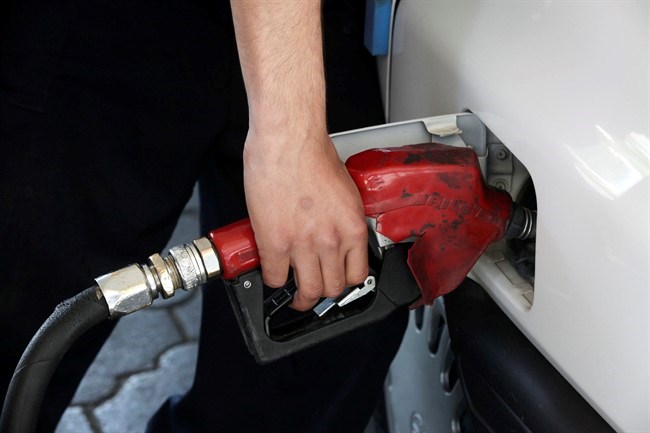Premier John Horgan dismissed the suggestion that taxes are primarily to blame for soaring gasoline prices, and instead said on Friday he was concerned about “gouging” at the pumps.
“There’s got to be something beyond just supply and demand going on,” Horgan said, noting that the price at the pump is at near record highs while a barrel of oil is about $50 less than previous highs.
“It’s not just about taxes. Since we were sworn in, we’ve raised the carbon tax one cent and gas prices have gone up 35 cents in that time. So it’s not a tax question in this instance,” he told reporters.
A recent report by the Canadian Taxpayers Federation said taxes can account for up to 40 per cent of the price of gas at the pump. It’s around 30 per cent in B.C.
Motorists might pay as many as six taxes, including provincial and federal excise taxes, as well as carbon and transit taxes, the report says, and Greater Victoria drivers are paying the second highest gas prices in Canada, following only Vancouver.
Horgan said the federation “likes to come out and say taxes are the problem.”
“This is clearly a problem of someone making an awful lot of money. “Raw-material prices are low. Refined prices are high. Somebody’s making money and it’s not the people travelling around British Columbia,” he said.
On Thursday, the prevailing price of regular gasoline in Greater Victoria was $1.559 per litre. In Vancouver, it was $1.569 per litre.
The federation’s report said that taxes make up most of the price difference between provinces.
The report comes as B.C.’s battles with both the federal government and Alberta heat up.
The federal government has said it is willing to write Kinder Morgan — or anyone else willing to take on the project — a cheque to ensure the Trans Mountain pipeline expansion gets built despite British Columbia’s opposition.
Horgan said the federal government should focus its efforts in another direction.
“I’ve maintained that if the federal government is going to get into the oil business, rather than getting in the business of transporting a raw product to the coast to be exported, why don’t we invest in refining that product to provide more supply to bring down prices for consumers and Canadians,” he said.
Meanwhile, B.C. is preparing to file a lawsuit to have Alberta’s new fuel-restriction law declared unconstitutional.
Attorney General David Eby said the province will file its lawsuit in the Court of Queen’s Bench in Alberta.
Eby said B.C. will apply for an injunction and seek damages if Alberta uses the new law to restrict fuel flows to the West Coast.
— With files from Carla Wilson



